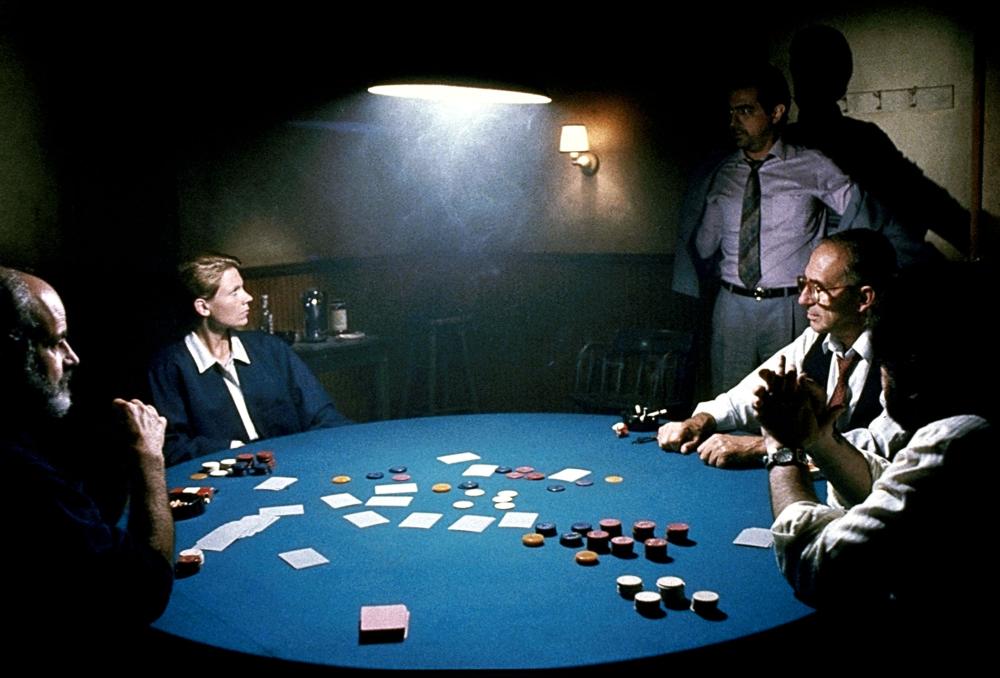
“I think it’s very likely I would have been a criminal,” David Mamet said, when asked who he might have been if he hadn’t discovered theater. “It seems to be another profession that subsumes outsiders… accepts people with a not very well-formed ego and rewards the ability to improvise.”
Thus, it should come to no surprise then that much of his written work focuses on such outsiders trying to make their way into this world.
In all of Mamet’s works, you get a sense that his characters are prisoners of a game from which they want to break free. An upper-class therapist finding thrills in the world of confident men; a jewel thief who wants to retire from the business, but his partner won’t let him; a once-promising salesman who finds himself an unwilling disciple of Willy Loman; a noble fighter living in a world where his code of honor means nothing; a middle-aged businessman veering into a violent night to find himself.
All of his stories are about America somehow, and his subjects rarely if ever venture beyond his native country. It’s about the fallen warriors of the American dream. Some make it, others don’t. Nobody is guaranteed a place in paradise.
It’s amusing to picture an alternate world where the playwright/film author has become a wise-guy, talking exactly like one of his characters. In the underworld, he would be known as a street poet. He would mesmerize his peers with his words; he would become a literary inspiration, inspiring the next Billy Bathgate.
Luckily for us, he poured his words onto paper. It leaped from the stage and eventually onto film. On this list, we take a look at a collection of films he either wrote or directed (or sometimes both). These choices showcase his talent in not only dialogue, but in tackling different genres or subjects.
Mamet has lately been the subject of ridicule due to his extreme conversion to conservatism. Yet even if you don’t agree, the way he writes his opinions are a blessing for the literary ear. Even the most stone-cold liberal will admit that his neo-conservative manifesto “The Secret Knowledge” is filled with beautiful writing, regardless if some of his logic seems laughably flawed.
In this, he’s an outsider as well, openly defying his liberal-minded colleagues because he refuses to keep quiet. Whether you agree with him or not, he went through the Hollywood machine and lost none of his edge. And that’s both a blessing for the stage and for cinema, and for all the outsiders who are watching.
15. The Untouchables
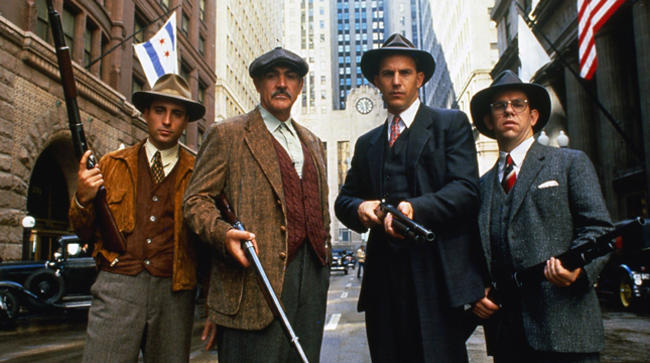
The Prohibition era offered a rich assortment of crime figures just waiting to be exploited on the big screen. One of its most infamous characters was certainly Al Capone, the co-founder and eventual boss of the Chicago outfit.
Mamet, having grown up in the Jewish side of Chicago, was certainly no stranger to the tall tales surrounding this public enemy. It’s the “Chicago tradition,” according to Mamet, to “love our con men and gangsters,” and so it seems like more than a fitting subject for him to delve into. But if you’re hoping for a historically accurate picture, look elsewhere. Mamet’s script doesn’t just take a few liberties with history; he completely abandons it.
What we get instead is your typical story about a few good men facing up against an evil empire. It’s very black and white, but proudly so. Don’t expect the bad guys to have any depth to them; they are either mustache twirlers, or scumbags, or big bad bullies who need to be locked up or blown away.
The film has a lot of old Hollywood sensibilities. It’s very much so a traditional Western in gangster garb. It has none of the complexity that Mamet would fuse into his later works. But even with all this, there’s no denying its incredible charm, and the great sense of fun and warmth that permeates the film.
The film follows Eliot Ness (played by an admittedly dull Kevin Costner) as he assembles a team to go against Al Capone (Robert De Niro). His team consists of young tough guy Giuseppe (Andy Garcia), nerdy accountant Oscar (Charles Martin Smith), and the absolute scene stealer of the film, Malone (Sean Connery), who becomes a sort of father figure to Ness.
Connery would eventually win an Oscar for this film, and it’s not hard to see why. The moment he appears on screen, he steals the film completely. It’s funny seeing him opposite Costner, because you can clearly see the difference of charisma between the two; Costner having none, and Connery brimming with it.
Aside from the great supporting cast, we have Brian De Palma at the directorial helm. Known for his excellent set pieces, such as the final shootout in “Scarface” or the chase in “Carlito’s Way”, he directs a few excellent action set pieces in this film. The most memorable would be the union station shootout, involving slow motion and a baby carriage.
There’s also the beautiful soundtrack composed by the infamous Ennio Morricone. The theme of “The Untouchables” is especially powerful, evoking a sense of fun and courage. But at the same time, the theme of death during the film’s tragic moments hit all the perfect notes, making the film not only fun but also incredibly moving.
“The Untouchables” is not a deep film, but it doesn’t try to be one. For what it set out to do, it did it almostly perfectly, aside from a very miscast Costner.
14. Spartan
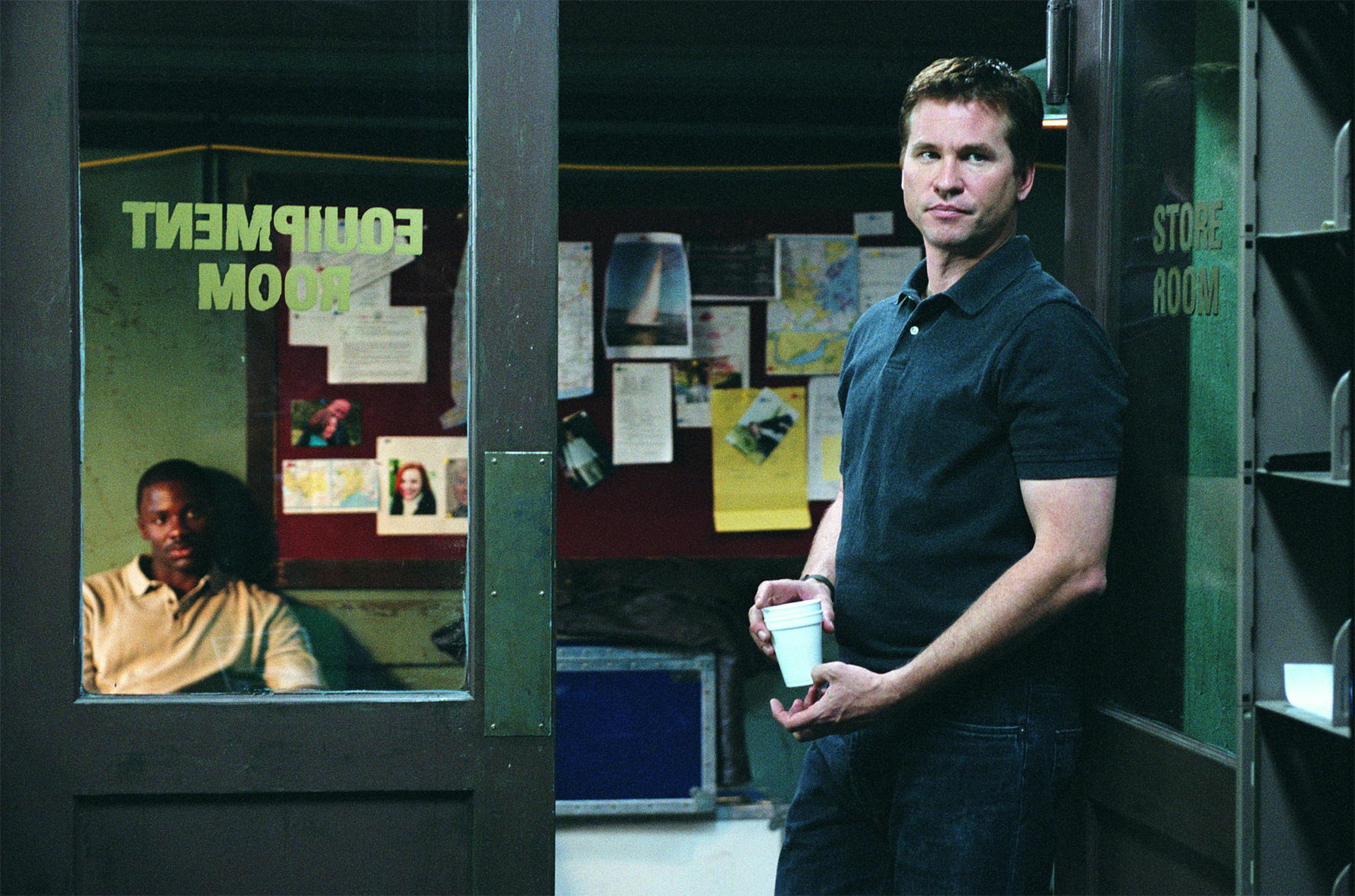
This film has a story similar to the first season of “24”, but being written by Mamet, you know you’re getting something very different. Val Kilmer is electric in this film, reminding us of what he’s really capable of doing, and it’s something he unfortunately shows very little nowadays.
He stars as Delta Force recruiter Bobby Scott, who is send out to search for the president’s daughter and becomes embroiled in a massive conspiracy. Another standout in the film is the underrated Ed O’Neill, who plays agent Robert Burch, who is also on the hunt for the girl.
The film is filled with realistic action, but it’s never too flashy. Real violence comes quickly and mercilessly and Mamet has no interest in making it look cool. Kilmer’s voice utters Mamet’s lines with macho ease, and it’s easily one of his finest performances. Because he admired the script so much, it’s easy to why he’s so good – he actually cared about the part. His character is super focused, like a machine.
Always “on”, always on the lookout, knowing if you are not careful, you might catch a bullet in your head. When he’s on a mission, it doesn’t matter how far he must go in order to complete it. He doesn’t shy away from any method, whether it be torture, kidnapping, or murder.
As you would expect from Mamet, the plot is filled with twists and turns. Mamet jumps from location to location, and to understand the full scope of the conspiracy, one has to pay very close attention. Derek Luke is excellent support as one of his recruits, but like many of the interesting characters in this film, they disappear or are dispatched very early. It all hinges on Kilmer’s character and his journey to complete his mission.
Mamet’s research and understanding of the psyche of government soldiers is undeniable. They might be composed and awesome on the battlefield, but there is a price, and that is their humanity. Soldiers need to be soulless robots, as their humanity is often in the way. Mamet based the main character on a real US special operative and the film’s plot is filled with real-life instances.
Like most of his films, his own interest and respect for the subject matter shines through. His fascination for such characters would eventually extend to TV with “The Unit”. This is essential Mamet viewing and deserves to be seen by more audiences.
13. Wag the Dog
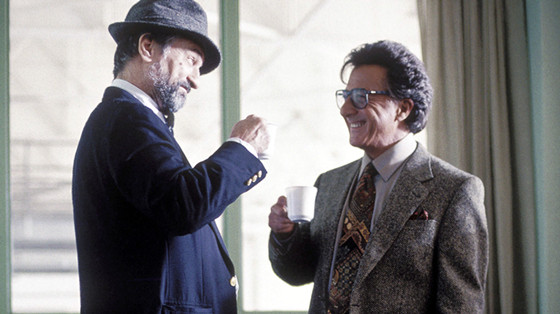
In most, if not all of Mamet’s works, there’s a power struggle in some form or another. In his most incendiary play, “Oleanna” (which was also adapted as a film by Mamet himself), it’s a teacher and a student fighting for their dignity. In “American Buffalo” (which has also been adapted in an excellent film), three low-lives turn on each other during the planning of a robbery.
In both films, we have a simple plot with complicated characters. Nothing is what it seems, there’s more beneath the surface, an unconscious drive that pushes them onto the playing field. More than often, it’s not just that people are conning each other, but that they are conning themselves. In “Wag the Dog”, however, which is loosely based on the novel “American Hero” by Larry Beinhart, Mamet takes on a much larger con: the media conning the American public.
The film details a mysterious spin doctor (Robert De Niro) colliding with a big-shot Hollywood producer (Dustin Hoffman) to distract the American public from the president being involved in a sex scandal. Looking at the era in which it was released, you might think this film was inspired by the Clinton scandal.
It was, however, a magic case of life imitating art, as the film started production before the scandal was unleashed upon American viewers. The fact that, in the film, they orchestrate a fake war to distract the American public, and that Clinton has been accused of distracting the American public when he dropped bombs in Al-Shifa, is just another eerie coincidence.
The film has an excellent supporting cast, with Mamet regular William H. Macy, Denis Leary, a particularly wacked-out Woody Harrelson, and a very enjoyable Willie Nelson. The original screenplay was written by Hilary Henkin, but according to director Barry Levinson, the meat of the script was all penned by David Mamet. Judging by the snappy dialogue, it’s not at all surprising.
The film is not only a satire on American media, but it also mocks the people’s need for a good story instead of the truth. Reality is, more often than not, dropped in favor of an entertaining story that spells out things and simplifies everything. Mamet mocks our need for cheap Hollywood sentiment, and how we devour it gleefully and apply it to our everyday lives.
When Hoffman’s character talks about the backstory of a character they are using for their spin, he uses the same logic as any screenwriter would use. It’s as if he’s talking about a movie, not about real life, and sometimes, as real life has proven in comparison with this film, cinema and life become eerily similar.
Even with the comical feel of the film, the ending is dark and devastating, showing that spinning the truth for political gain can have horrific consequences. There is more truth here than most politicians would dare to admit, and the film has only become more relevant over time.
If any political satire could come close to “Dr. Strangelove”, “Wag the Dog” is certainly a viable candidate. For paranoids and skeptics of media and the government, this is essential viewing. But even if you’re not a fan of either type, just watch it for the fine performances – the wonderful interplay between De Niro and Hoffman, and the humorous (and dark) turns of Mamet’s excellent screenplay.
12. The Spanish Prisoner
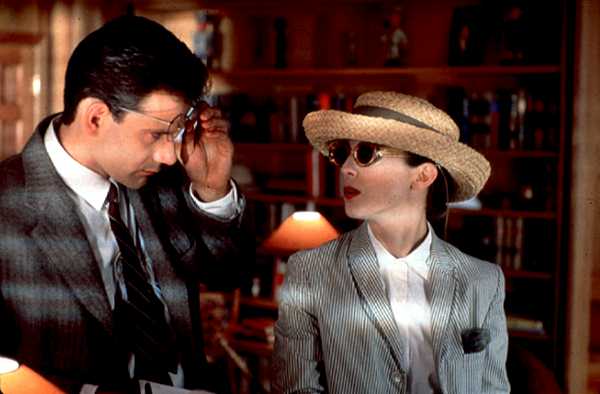
This is, without a doubt, a true Mamet film. It’s written and directed by him and it co-stars many of his familiar faces. The only trope missing from this film is his usual sweary dialogue, though it doesn’t make the banter between the characters any less entertaining. In a way, this film represents an old-fashioned Hitchcock mystery thriller loaded with Mamet’s witty dialogue.
Like many Hitchcock films, it involves a MacGuffin, who in this case is an unspecified chemical process that corporate engineer Joe (Scott Campbell) has invented. This particular process will grant his company so much money that, when he writes down the specific number on a chalkboard, his boss (Ben Gazzara) and associate (Mamet regular Ricky Jay) are stunned and unable to say anything clever.
In Mamet’s usual critique of the dehumanizing effects of cutthroat business practices, Joe is worried whether he will receive adequate compensation for his efforts, and confides this to a friendly stranger, Jimmy (Steve Martin), who he meets during a business retreat. Jimmy warns him of the position he’s in, telling him, “If they are indebted to you morally but not legally, my experience is they will give you nothing, and they’ll begin to act cruelly toward you.”
During this business retreat he also meets two attractive women, a new secretary for his company named Susan (Mamet’s current wife Rebecca Pidgeon), and FBI agent Pat (Felicity Huffman). Soon enough, Joe becomes embroiled in a complicated con that involves more than just the theft of his lucrative invention, but also murder.
A standout in the film is Steve Martin, who plays one of his rare villainous roles. It’s a cliche, but comedians tend to be very good at drama – sometimes even better. Mamet, as well as Woody Allen, has stated this phenomenon as well as Martin are just another example of this. Martin slips into his character seamlessly; perfectly natural when he manufactures kinship with our hero and subtly menacing when he reveals his true nature. You could almost see the makings of a great Tom Ripley.
Mamet published an infamous treatise on the philosophy of good drama called “Three Uses of the Knife”, which is beloved by both screenwriters and playwrights. “The Spanish Prisoner” is one of the finest examples of his incredible grasp on structure and drama. The mechanics of the plot, however, might be confusing, requiring multiple viewings.
Many found the twists rather predictable but even so, it’s not really about the twists and turns of the story. It’s more about the delicious way Mamet unfolds the plot. It’s all about the ride. And even if the plot loses you, there’s much to enjoy with Mamet’s natural gift of conversation.
11. The Verdict
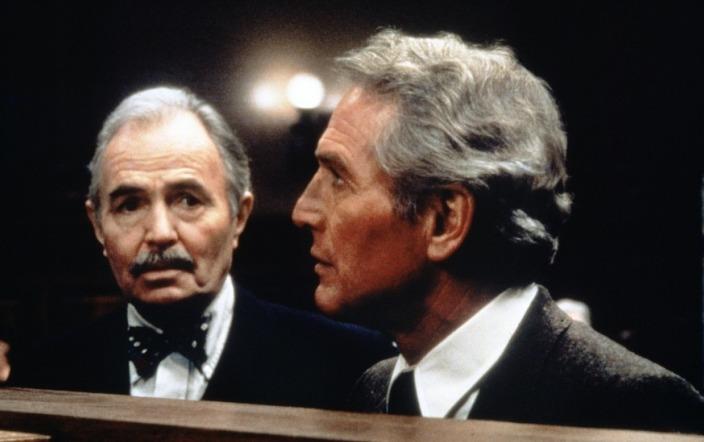
“The Verdict” is one of Sidney Lumet’s greatest films, and that’s saying something, with films like “Network” and “Dog Day Afternoon” in his repertoire; however, much of its greatness is owed to Mamet’s humble and powerful screenplay. Adapting the screenplay from Barry Reed’s book, the film underwent numerous rewrites, but Lumet eventually went with Mamet’s original script in order to retain the grittiness of its original vision.
Paul Newman plays Frank Calvin, an alcoholic and disgraced Boston lawyer who finds a shot at redemption with a malpractice case. Like many great courtroom films, he has to face giant entities; in this case, those entities are his own city, the Catholic church, and a high-priced lawyer (James Mason).
The story itself is nothing special, especially with the rise of John Grisham adaptations that would eventually appear onscreen, but none of them are as effective or as earnest as “The Verdict”. Calvin is one of cinema’s ultimate redemptive losers, and the epitome of a boozehound with a heart of gold.
You almost can’t believe that he can win, and when he gets a settlement offer you beg him to take it, not wanting to see him fall even lower. Newman plays the part without any of his usual star charm, giving the character an intimate vulnerability, with his beautiful blue eyes brimming with sadness and desperation. Even if you’ve seen the film countless times, you can’t help but feel nervous until the final verdict.
Aside from Newman, the film has a perfect supporting cast, with icons like Jack Warden, Charlotte Rampling, Milo O’Shea, and James Mason. In 2013, The Writers Guild of America ranked the screenplay #91 of the 101 greatest screenplays ever written.
Strangely, the screenplay was actually enhanced, thanks to Lumet, who convinced Mamet to change the ending of the script, which had an open ending because he at first refused to show the final verdict. “The Verdict” is one of those rare perfect films where everything just seems to work, and is without a doubt Mamet’s greatest screenplay adaptation from a novel.